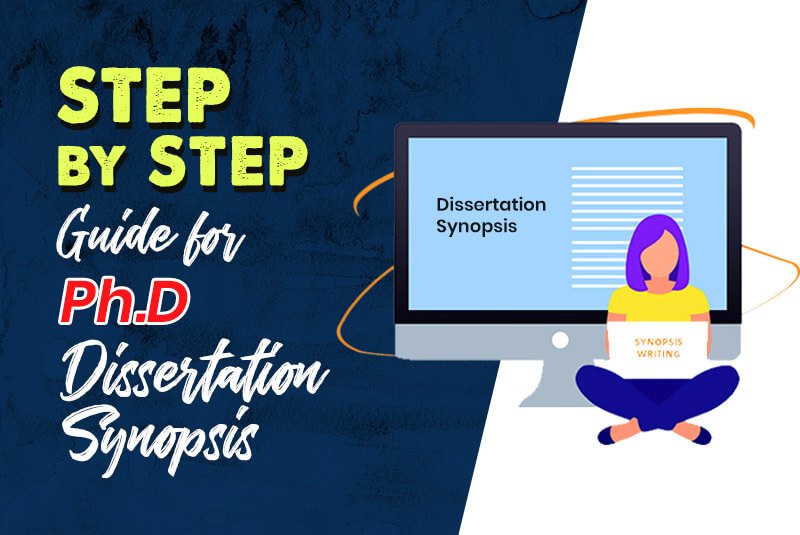
Just like how a milkshake has the entire mixture of the separate ingredients added to it, a dissertation synopsis is a short and systematic outline of the proposed dissertation that you’re expected to present.
You must be wondering why does one need to write a synopsis, right?
Well, it serves to ensure that your supervisor gets a clear image of how you wish to take your research in hand. Also, it allows them to find potential gaps or errors that need to be taken into consideration to add greater value to your research paper.
As boring as it sounds, it serves a GREAT purpose in making sure that the minor details are looked into!
“Wait, isn’t that what an abstract does to”?
Yes, that’s a common misconception you’ll hear when you enter into the tedious task of writing your dissertation and all other “parts” of it that you’ll have to draft.
Let me clarify this for you:
An abstract and synopsis are written to serve a completely different purpose and well, simply put, they’re absolutely not the same!
The abstract can be referred to as a short or standalone summary of the content that they'd expect to read below. It is restricted to a certain word count and thus, is very limited in providing information. It helps you to quickly ascertain the purpose behind the research paper and so, does not include in-depth detail.
As mentioned before, a synopsis is a brief outline or a general overview of your research paper BUT with much greater details. It includes the hypothesis of your research paper and even the methodologies that you used to conduct the researches.
Now you know the difference so you can thank me later!
We’ve talked about the basics and now it’s time to jump right into the “real deal”.
I'm aware of the fact that when you first open your laptop to draft your Ph.D. dissertation synopsis, you find words revolving around your head like planets yet, you remain confused about WHERE TO START AND WHAT TO INCLUDE.
In such times, I want you to do two things:
I know you’re patiently waiting for me to start my guide and so I will, without further ado. Let’s get started!
Imagine this:
You invest weeks of planning about the research topic and finally start drafting your synopsis to show your advisor, just to realize that the topic you selected is inappropriate and insufficient or your course.
Heart sinking moment indeed.
Let’s get one thing straight: This probably the biggest nightmare for a soon-to-graduate student and just thinking about it is enough to feel miserable. So, when it comes to topic selection, it’s definitely not easy as it sounds.
In fact, topic selection is the most crucial segment of your entire dissertation writing process, since it ensures that all the research work that you’ll be conducting is WORTH THE EFFORT.
I’m sure that none of you would want to have such a negative and demotivating experience and so, I want to highlight the fact that you should……. wait, you MUST follow your supervisor or university guidelines before stepping onto the next step!

Ask yourself this question when moving onto the next step:
-What am I writing my research paper on this specific topic?
-Does it serve any purpose?
-Does my paper have certain objectives to meet, regarding the topic in focus?
-Any research gaps that it is ascertained to fill?
The formulating of “aims and objectives” of your dissertation in an appropriate manner is one of the most crucial segments of your synopsis and so, you must make sure to do this in the best way possible.
This section determines the following main aspects of your research paper:
I won’t say that this is not an intimidating task to fulfill but I will say that with the right attitude towards your work and with constant determination, you can conquer anything!
With that being said, let me give you a little explanation of the key features included in your hypothesis (It’s not boring, trust me!)
Gives clarity regarding the research questions asked and answered in your dissertation
It's an educational and tested prediction about the results of your dissertation
I don’t want to add into your confusion so I’ll just let you know what exactly you’re expected to add here. Basically, here, you are predicting the relationship between variables. Through the disciplinary insights gained in the research process throughout the year, you “prove” your hypothesis. Might I also add that it is not a strict proof as in logic or mathematics- Simple enough?

After you’re done with the hypothesis, the next step would be to write the Literature Review of your work (Sounds like a lot of work?)
Well, this generally appears near the start of your final dissertation, right after the introduction chapter and is a vital part of the overall research paper.
You may refer to this blog to get greater insight.
According to cheap dissertation writing services based websites, this is the overall summary of the current writings done and researches conducted on the topic that you've chosen to base your research on. It's worth mentioning that instead of casually listing the various writers and their opinions, this section must include a CLEAR idea of the whole field; describing the different literature bodies involved and other relevant standpoints, indicating whether general opinions have been changed or are being challenged in recent times.
When coming onto this phase, a wide majority of you may face problems regarding the following so you must prepare yourselves beforehand:
| Problems faced |
|---|
|
|
|
|
|
|
|
|
|
|
|
As the name itself suggests, this section expects you to add all information regarding the methods with which you will/have conducted the research material for your paper. The sources use may be primary, secondary or tertiary; based on the requirement.
Conducting questionnaires and interviews are two common examples of collecting value-added evidence in your paper. Whatever methods you may have opted for, all you need to do is little outline regarding that in your synopsis, so that your supervisor knows exactly where you stand with the research material.
This section also allows your supervisor to add any of their opinions on better and more effective ways of conducting the research.
For example, you may have opted for using the questionnaire method to identify a certain conclusion, with regards to the opinions of others. Your supervisor might suggest that the information you collected is still inefficient to prove the conclusion and ask you to conduct in-depth interviews instead.
Your synopsis must also include a reference and citation segment; which tells the reader where the facts and figures have been added from. This makes sure to annihilate all plagiarism concerns that you otherwise arise in the paper.
When you add this section in your synopsis outline, your supervisor will know the exact sources you’ve used and this will also signify that you have the required research material for the actual paper.
When coming onto this step, you may consider these golden points to ease your work burden and removing chances of possible errors:
Focus more on recent papers so that your research is backed with updated information.
Avoid the citing of personal communication, unless, of course, it provides essential information not available from a public source.
After reading all the steps I’ve mentioned above, I’m sure you’re wondering why you need to go through so much hassle in the first place.
Well, you see; many E-book writing services providing companies believe that writing a Ph.D. dissertation is not child's play and requires you to watch your step on every way that you move forward. You need your instructor’s validation through the process, before actually going onto writing the paper.
According to thesis writing help websites, a well-structured synopsis has the power to clearly portray your standing with the dissertation topic. If written in the right format and with the correct information, it conveys a positive image or your supervisor and shows that you’re prepared to go onto the next step on crafting your dissertation.
To wrap it all, I want to mention some expert tips on what and what not to include in your synopsis, as also suggested by the experts providing thesis writing services, so that you may be rendered completely free from all the confusions surrounding you:
| Do | Don’t |
|---|---|
| It should summarize what’s expected from your research paper | Structure your synopsis the way you please |
| Show good and reliable preview of your writing skills | Use fancy wordings that confuse the reader |
| Adhere to the university guidelines when it comes to the format | Include too much detail about your research paper and over-do it |
| Use clear and concise wording to explain your exact stance | Add unnecessary details, description or explanations |
| Write in an organized and planned manner | Make each word in your synopsis count |
Might I also add that at the beginning of your dissertation period, your synopsis will be limited in its scope and detail, but, as you proceed further onto the next stages, you get a clearer picture of your aims, the methods you’ll be using and the references, the more and properly detail your synopsis will become- Make room for changes, always!
Generally, synopsis writing service providers suggest that the length of your synopsis can vary from two to five pages but all the specific requirements will ultimately depend on your university requirement
A good approach from the initial stages will be to establish a good practice over how to write the headings and then, be consistent
The thesis editing and proofreading service providing websites underline the fact that the final version of your synopsis for your dissertation should not be an informal draft and so, you must invest the proper time into doing it correctly. If you think this is too difficult, you may also avail assistance from online thesis writing websites, to ease your burdens!
When you have all the research material and are starting out to finally write your synopsis, you won’t find it as difficult as it sounds. With the right amount of effort and an investment of your time, you’ll be able to conquer this task with ease- It’s time to stop worrying and get working!
We specialize in a lot of subjects and offer our services in most of the academic categories.

